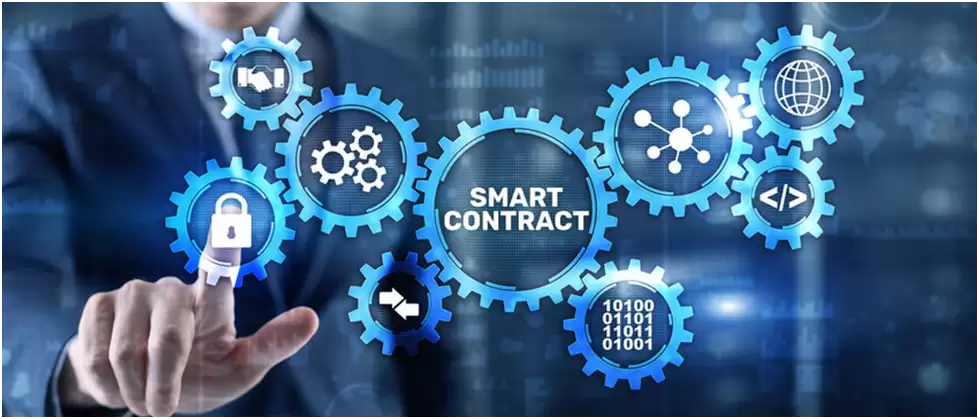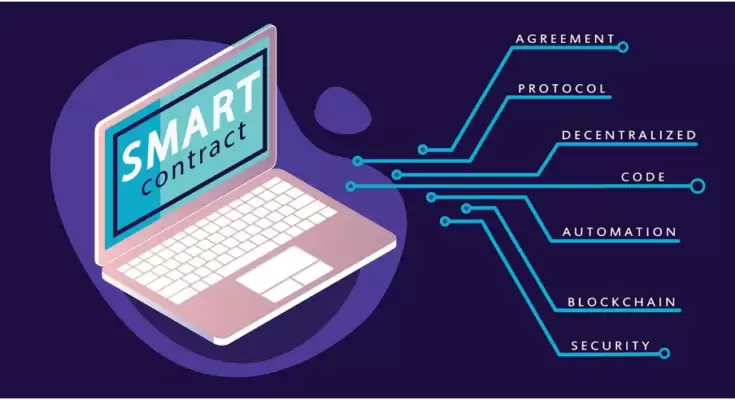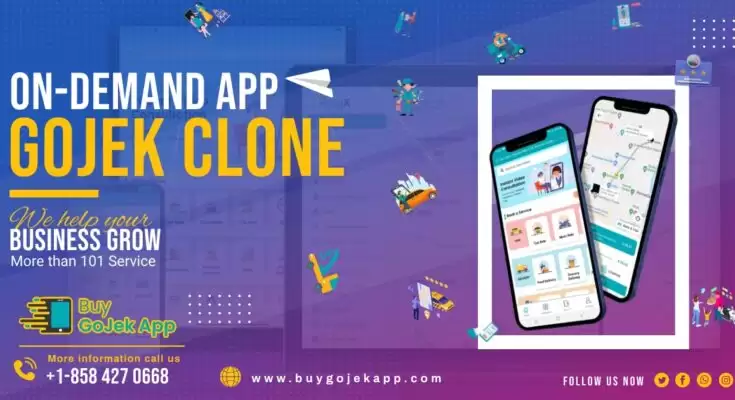Blockchain technology is a service that guarantees the security of transactions of various types thanks to the way your data is stored. It consists of multiple applications , the most popular being cryptocurrencies, such as Bitcoin; and smart contracts. The main relationship between Blockchain development company and Smart Contracts is based on the fact that these agreements are executed in the block chain, therefore, they cannot be modified.
In the business world, the use of these contracts has practically no limits. Leaving aside human errors, bureaucracy, and increasing the transparency of exchanges, both goods and services and money.
What is a Smart Contract?
As we know, traditional contracts are files that stipulate a series of rules that the members involved must comply with. Like these, smart contracts or Smart Contracts are digital documents that include different clauses , but whose information is stored in the blockchain .
Therefore, they are in charge of managing the link between the signing parties in an efficient, immutable and scalable way, generating incentives when the conditions of the agreement are met .
For example, they have the ability to self- execute the actions imposed in the contract that have been programmed. If it has been stipulated in the agreement that an economic transaction has to be made on a certain date, this could be done automatically.
Origin and operation of Smart Contracts
The idea for the first Smart Contract is considered to have stemmed from Nick Szabo . Who between 1995 and 1997 generated a series of detailed documents defining its use. However, due to the technological capabilities of the time, it was not possible to reproduce the necessary infrastructure for its execution.
With the creation of Bitcoin in 2009 by Satoshi Nakamoto, the next step was taken in bringing Szabo’s theory to reality. Creating a system that allows transactions to be made automatically without third parties in a resistant network. With this, the alliance between Blockchain and Smart Contracts materializes and opens the way.
Bitcoin’s relationship with Smart Contracts continues to progress. For example, through cross-platform wallets, where all parties must approve the transaction before funds are released.
Oracles, blockchain and Smart Contracts
Smart contracts are created by natural persons, legal entities and even by automatic programs.
A very popular topic in relation to them is the term oracles. They are the tool that monitors the activity of a network and allows the Smart Contract to interact with the real world . They connect its content with updated information from abroad.
In other words, they collect the data of the situation and send the signal so that the commitments are applied and fulfilled without having to intervene . For example, compensating the user in case a flight is delayed or checking the results of a bookmaker.
It should be noted that it is important to check that the external sources to which the oracles connect are reliable and official.
Platforms and development technologies
There are various platforms to create smart contracts, but we have decided to collect the most popular technologies that relate to blockchain and Smart Contracts.
Ethereum
It is currently the most widely used, a computing platform that executes these contracts without central servers, with the Solidity language and using a virtual machine .
It adds a more complex logic within the blockchain, since its language is more complete than, for example, the Bitcoin theory. So a new public network has been created from scratch , which allows adding more possibilities but has given up the Bitcoin network, which is currently the most powerful.
Hyperledger
In addition to other alternatives such as Codius, Polkadot or Counterparty, we find Hyperledger. A flexible platform developed by Linux that allows the development of Smart Contracts without being a cryptocurrency.
Advantages of Smart Contracts
Eliminate intermediaries
They provide absolute autonomy because they offer the possibility of carrying out the entire process without the need for third parties or external agents, such as notaries. They can be done without human intervention thanks to their decentralized nature.
Security
We have already indicated that one of the main characteristics of the blockchain is its guarantee of data security and immutability . This is reflected in the Smart Contracts, which become unalterable documents whose information cannot suffer errors and is not subject to interpretation.
Transparency and traceability
The data is fully available during the life cycle of the contract. This, together with its unalterable capacity, provides great confidence to users, who have the absolute certainty of the integrity of their content .
Knowing in its entirety all the history of the contract procedures in each of its stages.
Effectiveness
As we have mentioned before, and beyond their legal validity , they can be configured so that actions are produced as a result of real events. These are self-executing and work autonomously, making automatic payments or compensation in the event that their terms are breached.
Saving
The use of elements such as time and energy is reduced. Since these procedures are mechanized and in the long term they do not require as many resources as a conventional contract, being more sustainable.
The challenge they face
Novelty
In the first place, we find the early stage in which they are and the possible distrust that this can generate.
Blockchain and Smart Contracts are very new elements that are still making their way into society today. Although technology lovers and innovation-oriented companies are increasingly using them, there is some hesitation in more conventional groups .
We are only scratching the surface, they both still have a lot to evolve in order to show us their full potential. Little by little they will become even more popular and provide new features and aspects in which to incorporate them.
Cannot be corrected
Next, another aspect, which also coincides with being one of its great advantages, is immutability. That it cannot be modified at the security level is a point in favor, however, if there is a need to make a change due to force majeure, it will not be possible . For example, natural disasters or exceptional situations such as the pandemic.
Delegation for its construction
Finally, to guarantee its integrity, it is necessary to resort to experts in the field , since creating them is not an easy task. It is vital to have programming experts as well as legal counsel to determine their clauses, so just anyone should not develop them. Although little by little it will be possible for users to create them much more easily.

How are the blockchain and Smart Contracts being used?
Relationship of Smart Contracts with cryptocurrencies
The most popular example is the use case of Bitcoin for the creation and execution of agreements through the blockchain. This cryptocurrency provides logic to money, forming programmable money.
One case where it could be used is when automating inheritances at the time of death. Where in real time the contract would enter into force and the funds would be distributed to the agreed parties.
Product development with smart contracts
It helps to keep track of the development process of a product, registering all its stages and activating a follow-up from start to finish. In food it is often used a lot.
Once both parties have signed the Smart Contract, all relevant information is uploaded to the contract . In this way, the origin of each element can be reliably demonstrated and payment can be made at certain times when changing phases.
Financial and banking sector
By guaranteeing the security of all documents, it eliminates any possibility of manipulation of accounting files , in addition, it provides complete transparency.
They are very popular when it comes to calculating settlement amounts and automatically transferring funds or charging commissions for loans that have exceeded the maximum repayment date.
Health
Through IoT-enabled medical devices connected to patients , the smart contract can detect specific events and apply specific actions.
Likewise, thanks to the blockchain and Smart contracts, after approving measures with the signatures of providers and patients, access to medical records and transfers is provided, generating Smart electronic files .
Public sector
For surveys and voting , the use of the Smart Contract registers the vote of each user in the block chain, thus guaranteeing the integrity of the results when they are uploaded to their network.
Similarly, they serve to process bets and define the terms while maintaining the security of the agreement. Or to manage Smart Properties , properties connected to the internet, such as houses or cars.
Blockchain and Smart Contracts, what awaits them?
The future of Smart Contracts is yet to be defined, but without a doubt, they still have a long way to go . Many sectors already use it, so it is sure that little by little they will spread to other industries.
At Armadillo Amarillo we can help you with the blockchain and Smart Contracts through multiple actions. Since we offer a 360º service accompanying you in its development and in all the previous and subsequent phases.








